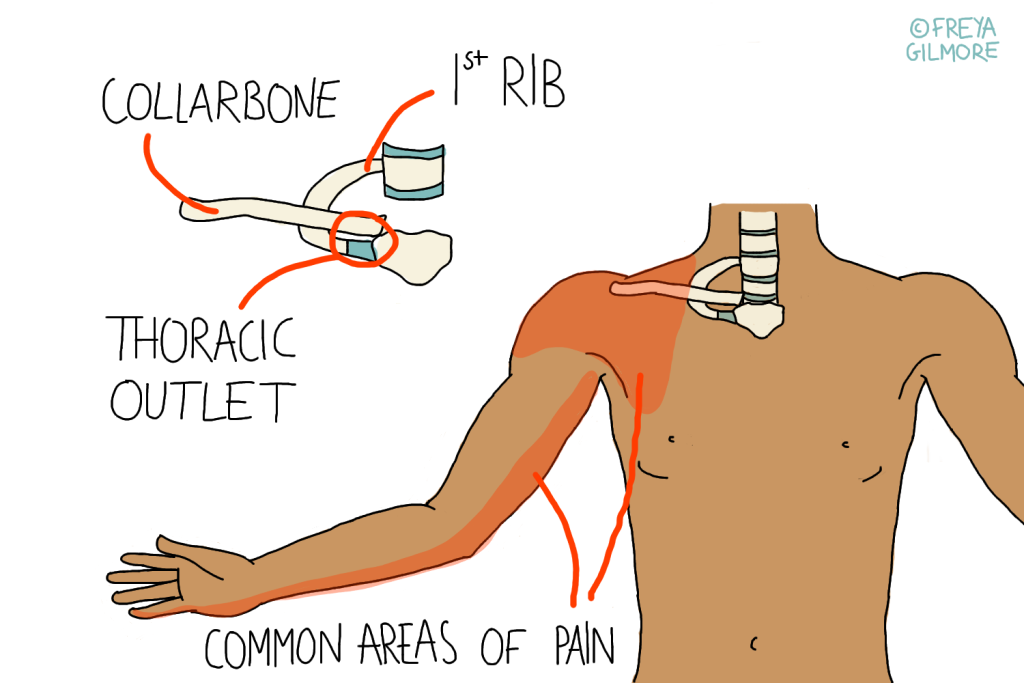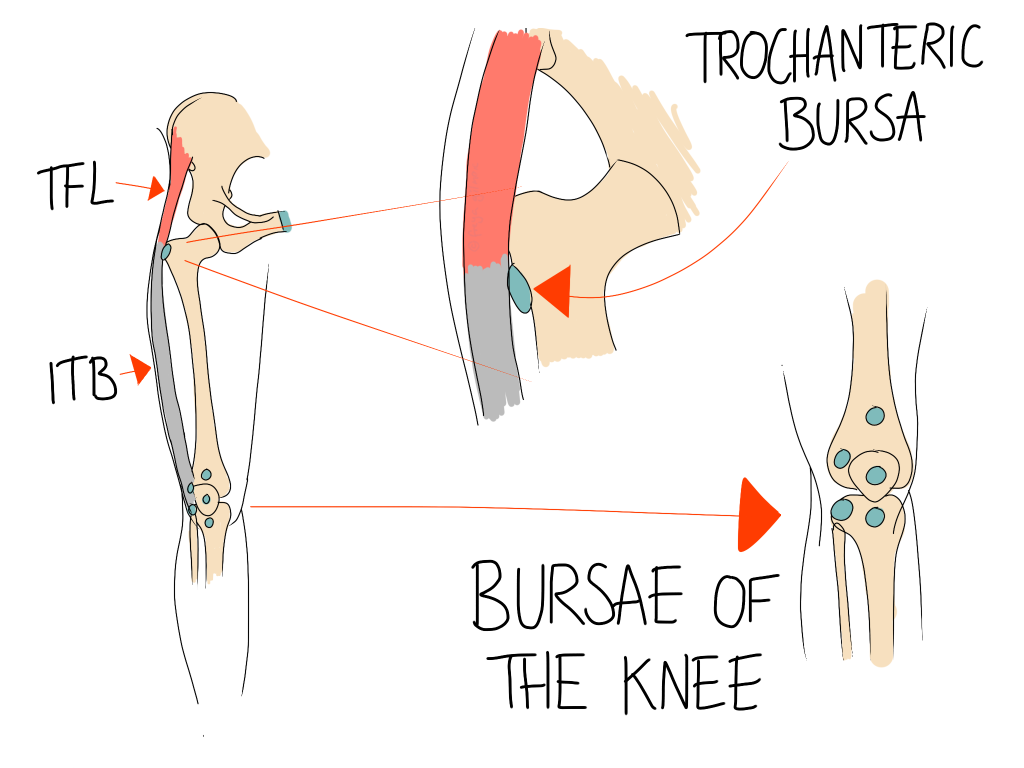The piriformis muscle is a deep muscle in the buttock, which primarily rotates the hip. It also flexes the hip (knee to chest), brings the thigh out to the side, and stabilises the pelvis. The reason this muscle is so clinically relevant is that the sciatic nerve interacts closely with it. The piriformis and the sciatic nerve can interact in a few ways. For most people the nerve will pass under the muscle, but part or all of the nerve can pass right through the piriformis. This isn’t a problem in itself, but leaves the nerve more vulnerable to irritation, for example, if the muscle gets tight.
Symptoms of Piriformis Syndrome
Symptoms often include pain in the buttock, particularly when performing actions that activate the muscle, or when sitting. Driving can be particularly painful, as the hip is more flexed than in an office or dining chair, and there’s less opportunity to move. The buttock pain may extend further down the back of the leg, as Piriformis Syndrome is a form of sciatica. In this case, the pain would likely be sharp or shooting in a defined line. Typically the cause is something to do with the muscle, be it a tightness, inflammation, or trauma. Possible reasons for tension include walking awkwardly, neglecting stretching after exercise, maybe even the trauma on the buttock of long distance cycling. Prolonged sitting can shorten the muscle, allowing it to tighten. This means sitting posture can be a predisposing factor as well as an aggravating activity.
Diagnosis and Management
It is possible for sciatic pain to come jointly from involvement of the piriformis muscle and other causes, such as an irritated intervertebral disc. During your appointment, we will take a case history and examine you to determine the likely cause. With a diagnosis in mind, we can devise a personalised treatment plan. This might involve exercises or lifestyle changes alongside hands on treatment. Expect treatment to involve joint mobilisation, muscle stretching or massage, and potentially nerve stretches too. It may be appropriate to treat into the lower back or leg as well as the root cause: osteopaths look at all the factors and treat the body as a whole.
Click here to make an appointment in MK or Buckingham for your leg and back pain




